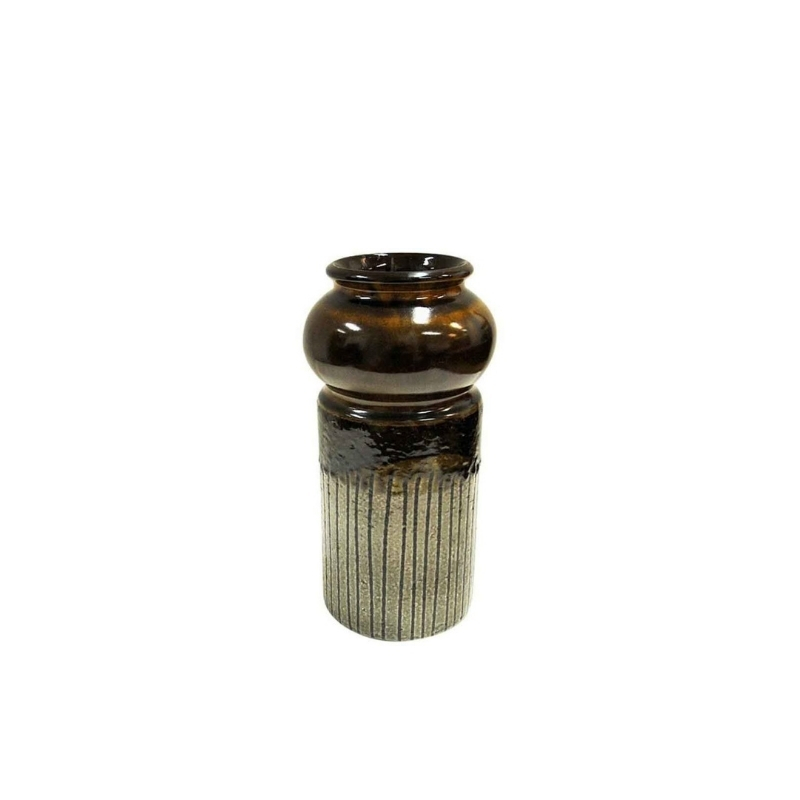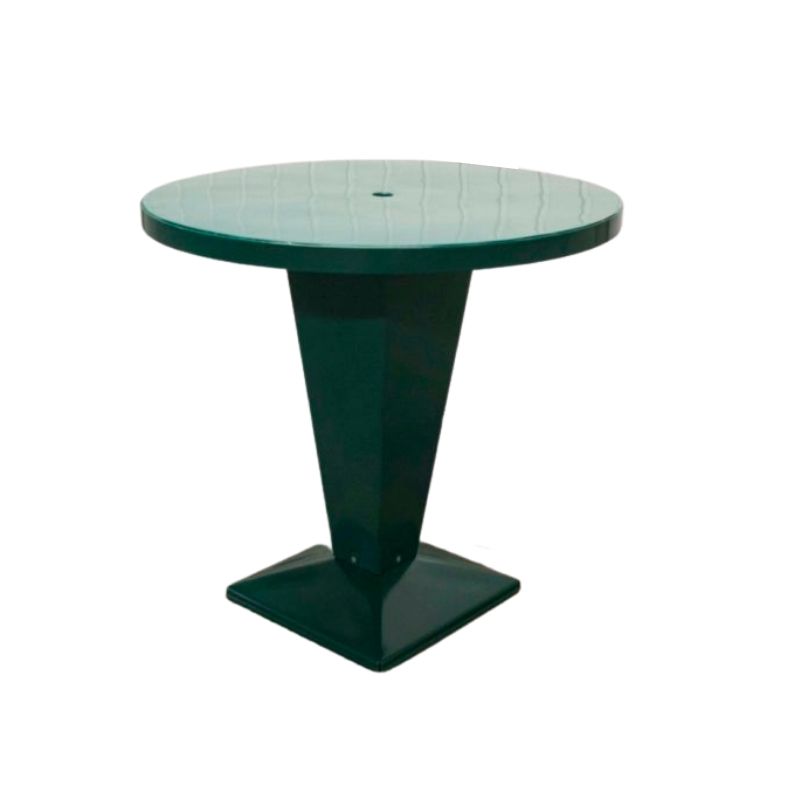To what extent do furniture stores sell products using "sustainable wood"? Many well-known stores, like Ligne Roset, contain no environmental impact statement on their websites. De la Espada does contain such a statement on its website.
Is it a fair assumption that most, if not all, furniture manufacturers use sustainable wood for their tables, bookcases, etc.? Or this a question I should ask the retailer or manufacturer before I make a purchase?
In short...
I don't know the answer, but it is a very interesting question. I suspect the answer hinges on a definition of sustainable. Frankly, most of the common wood at a lumber yard is sustainable under one definition. Most pine and fur in USA forests are probably third or fourth generation cuts; that is the forests have been harvested and replanted that many times, if not more. And the generations between cuts are growing shorter as genetically engineered tree stock is being replanted that matures sometimes in half the time of traditional varieties.
Now, there's alot of quarrelling over whether traditional tree farming is sustainable enough. Does it count as sustainable when you clear cut all, or intermittent patches and wipe out the ecology of a forest once every 14-30 years? Another question is should we consider genetically modified tree stock as part of a sustainable forestry? Or is migration to genetically engineered trees (not just seed hybridization, but getting inside the cell nucleaus and changing the DNA/RNA mechanism) creating something fundamentally unsustainable, because its reduced genetic diversity makes it more vulnerable to catastrophic disease outbreaks?
It will be interesting to see what designers and producers have to say on this topic. My guess is that most may not want to touch it with a ten foot pole (made from a tree), because the there is not consensus yet on what sustainable does or should mean.
2030 Challenge and LEEDS
I have been becoming more aware of 'green' and 'sustainable' policies and politics lately. DCW is correct, from what I've learned. There is A LOT of posturing and politicking out there on what is, and is not, sustainable. I would say DavidDC, that you should not assume anything and ask what policies are in place at whatever company you buy from. If you are interested in reducing your impact ie: becoming 'carbon neutral', a good place to start is to see if any of the products a company offers are capable of utilization towards LEEDS certification. (see link below to the US Green Building Council)
Another thing to learn about is the 2030 challenge. Here's a link: http://www.architecture2030.org/open_letter/index.html
And to let you know one other thing I have learned...you can make a huge impact on the amount of waste and resource use you need just by making careful choices in the everyday things you consume.
Like for instance:
Use compact fluorescent light bulbs and turn them off when you leave a room. It is a fallacy that it uses more energy to turn them on and off frequently.
Purchase items that are not over-packaged or have at least recyclable packaging. Those miserable to open plastic clamshells are some of the worst offenders.
Keep your home at 68F in the day time 60F at night, or lower if you can manage it. You save 1% of your average consumption for every degree below 72F. Besides you'll get to wear all your nice sweaters.
Wash clothes in cold water and use triple concentrated detergents to save on energy and packaging waste.
Unplug chargers. Like for cell phones and ipods. The transformers use a constant trickle of power, so unplug them when not in use.
Walk. Ride a bike. Take public transit. This is easy for you in your area.
It's good to know that other DA'ers are thining along the lines of become more aware and active in resource conservation. Global warming is no joke.
http://www.usgbc.org/DisplayPage.aspx?CategoryID=19
Adding to Olive's list
Among the lifestyle changes I've made this year . . . .
- Natural cleaning products. It's amazing how versatile a solution of just distilled vinegar, water and lemon juice is. I use it to mop floors, clean counter tops, glass top tables, mirrors, cutting boards, etc.)
- I use Method (from Target) laundry detergent, and Ecover dishwasher detergent.
- Installing a water saving shower head (very inexpensive).
- Recycle, recycle, recycle. (While many cities/municipalities won't accept plastic grocery bags, most grocery stores have bins where you can recycle them.)
- Buying locally grown products whenever possible.
- Using cloth napkins and dish towels (very inexpensive at IKEA), instead of going through almost a roll of paper towels every week).
- Dumping Swiffer and swiffer pads for a standard mop.
Next year, I hope to replace toilet with dual flush toilet. And I'll likely sell my SUV for a more gas efficient car, e.g., Toyota Scion.
Been here done these too!
Except for the dual flush toilet. I originally started all of this to improve my asthma and allergies, but developed a strong need to reduce my 'footprint' while I was on the path.
We downsized our vehicles but I've been thinking of going further and looking into a biodiesel. I know the guys at the link below and their kit is super easy to install.
And don'cha love Method? The scents are gorgeous and the products work very well. I tried the Ecover dish detergent but found it left a white powdery residue on the dishes. I like Seventh Generation better.
http://www.greasecar.com
I was trying to convince my
coworker why she should switch to natural cleaning products, especially with a baby on the way.
She said she actually loves the smell of bleach! She said the smell of bleach makes her house "feel" clean - ew.
I will check out the compact florescent bulbs - I've heard they've improved since the days they first came onto the market.
And even though I recently purchased a sofa, I do take a more in depth analysis of my needs versus wants when it comes to purchases. I just donated a LOT of stuff at Goodwill this past weekend. It is scary how much stuff I accumulated this past year that I either didn't need or use.
Once you start using all these natural, non toxic soaps...
you can, if you live in a house in exurbia, or even suburbia, route all your grey water sink lines to your flower beds and garden. This massively reduces effluent either into sewers, if you are on a sewer line, or into ground water, if you are on septic.
Further, and I don't mean to gross anyone out, compost toilets are a very promising technology that I haven't used, but which I've been told work well with some care and are improving with each generation of development. This could be an incredibly important advance out in exurbia and suburbia in terms of reducing effluents on sewerage systems and septic systems. Recycling the compost from the toilet into a garden would really reduce major energy inputs and chemical use applied to handle collective sewerage effluents.
Moving people out of exurbia and suburbia is often talked about in trying to create more environmental efficiency, but when you begin to look at the costs and energy loads associated with moving and exurbians and suburbians into reconstructed dense cities, it usually makes a lot more sense to leave people where they are and teach them to optimize their resource consumption efficiencies there.
If you start using...Pt.2
I live on an acre in exurbia. Everyone in my area pays to have their green waste transported to dumps or compost centers. I decided I could compost everything right on my lot. That means I don't use a petroleum based green waste barrel. It saves me from having green waste trucks come by and move it to the dump or another compost site. It saves my compost from being repackaged at that compost site and shipped, warehoused, and reshipped to lawn and garden stores. It saves all the energy consumption and resource consumption of all the firms involved in all the green waste and composting and resale system. It saves me from having to drive to the lawn and garden store to buy compost. It saves me from having to drive it home. Just something as simple and low tech as raking all my leaves and clippings and putting them into a long row compost pile that I leave sit from autumn to autumn (no bins, no turning the crap, no starter bacteria, no careful mixing of green and brown, no chipping and shredding, just throw all the leaves and grass I rake onto the pile and when a section is waste high cover it with trimmed branches) and I cut out a completely ludicrous, wasteful green waste barrel loop in our society. I'm convinced that green waste barrels were a well intended idea that is completely absurd when one stops to analyse it--at least in suburbia and exurbia. Where did I learn about composting? First, I learned about it from environmentalists. But I learned all this useless stuff about composting bins and taking temperatures and trying to make perfect compost. Noone needs perfect compost. A year of sitting and rotting creates perfectly good compost. And I can attest that on an acre, I generate more compost than I really need in a year, which creates a feedback loop for me to cut back on how much is planted on my property in the first place.
also consider cooking with solar ovens...
cornell university has a keen group of engineers operating through an institute that specialize in developing low cost solutions for making daily life at least a little better in third world regions off the infrastructure grid. they find low tech ways to produce things like home electricity (e.g., a steam driven generator made with odds and ends with steam created from ground water heated with solar collectors, etc.). Not all of it is environmentally benign, or appropriate to our society, because they are focused on trying to keep people from dying of exposure, hunger and thirst, rather than solely on being green. but one of the things they have come up with, which is fairly benign, is something they call a solar oven for baking things.
Basically, it is a wood frame cube about a foot long on each edge with one open side. The other five interior sides are covered with a mirror coated mylar. Around this open side is added a two or three foot wide "collar" that is angled about 30 degrees outward from all edges. The collar is also coated with a mirrored mylar layer. You tilt this solar oven toward the sun and it collects sun light and directs it to a focal point inside the box. You place a loaf of bread, or a cast iron pot of beans, or crock pot stuff for three examples, in the box and let the sun light cook it. Cooking takes several times longer, and you do have to keep it oriented to the sun--not a big burden if you work at home, but not one watt of electricity is used to bake the bread, beans, or crock cookery. And the resources used in creating the oven are pretty modest, though I can't speak knowledgeably about the issues with mylar. But even if mylar offends you, it probably offends you less than typical dedicated bread baking ovens. And they say it works even fairly cold weather. I know it seems kind of eccentric at first, but I have been kind of surprised that green designed houses that I've read about in various magazines fail to include these kind of outdoor ovens. In summer time, its alot easier to keep a house cool with either AC or a green heat exchanger if the kitchen oven is NOT used.
Frankly, I think using sun light to create steam is also a very exciting low tech solution to certain electro-mechanical requirements on a property. I think the green movement has become kind of obsessed with the pancea of solar panels. Solar panels are pretty efficient (but horribly expensive) in California where I live, but if you live in a region with ample precipitation, flowing streams and a high water table, I think converting water to steam with sunlight and then to electrical and mechanical advantage as needed is something that alot more persons ought to consider. it isn't sexy and the state has not chosen to subsidize it, but it just is alot cheaper and lower tech and I'm betting more benign to the environment.
No Time!
I'm running around like a madwoman packing to leave for the holidays and I really want to spend time talking about all this!
But...quickly...
Solar power has come a long way lately, I've been considering a system at our home. Check out the American Solar Energy Society link below.
I'd love to use grey water at my home, but I am forbidden by law to use it as I live above an aquifer that drains into the Quabbin Reservoir, which is the main watersource for Boston. Grey water is a very good idea, though especially in drought-prone regions.
Composting was a normal habit in my family all my life and I've never used the garbage disposal unit in any home I've lived in. It's so simple to do and truly it's the way nature is suppossed to function anyways!
DavidDC, bleach is nasty stuff, and so many people over utilize it! Keep trying to talk your colleague out of exposing her kid to it!
Also I recently read a startling factoid and sorry I can't remember where, but, I read that 25% or the world's pesticide usage is on only 3 crops, coffee, chocolate and cotton. This is especially bad news on the chocolate and coffee side as the roasting of the beans can lock the pesticide residues into the saturated oils of the beans. So if you buy nothing else 'organic' consider buy in these that way.
Merryy Ho Ho Ho to all, God Yule!
http://www.ases.org/land.htm
sustainable wood
asking whether timber/board products used in the manufacture of furniture that you're buying have FSC certification is a good place to start. The FSC has loads of info on their website at http://www.fsc.org. You might find some useful (UK) info at http://www.fira.co.uk/services/specialistAdvice/Club_Green.html
as well.
outstanding read
i have just finished reading cradle to cradle by mcdonough and braungart. this book puts forth the most holistic approach to design and the environment (while being very upbeat and unmiserly) that i have ever heard of (i have had a deep interest in both subjects for 30 years). completely welds the fields of design and environmentalism together in the most beautiful way. north point press has an excellent summary of this. may well be THE book on both these subjects. all this and from people who are practising what they preach. bill
green design materials and consumers
Much of the green team has turned a good idea into marketing used to move more product. Sustainable materials used to manufacture mass produced product is good unless the product does not solve a new problem with an eye on the long term. Much of it is poorly constructed and end-of-lifes quickly, resulting in more garbage and necessitating another purchase of new goods (the vicious cycle of Chinese double happiness). Buy something you love that is built to last a lifetime and you may find yourself not too terribly concerned with shopping.
If you need any help, please contact us at – info@designaddict.com









